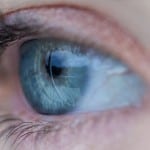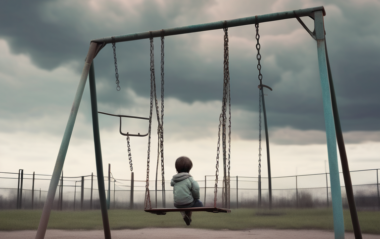Orlando Complex Post-Traumatic Stress Disorder (CPTSD) Counseling and Therapy Services
Our CPTSD Trauma Counselor Experts serve Orlando, Central Florida, Winter Park, Clermont, Lake Mary & East Orlando Florida area.
Learn to move on from the effects of pervasive childhood abuse and neglect with the help of our expert CPTSD therapists.


If you or someone you know is struggling with CPTSD, our trauma experts can help.
We use a variety of therapeutic strategies such CBT, DBT, EMDR, EFT, Mindfulness, breathing and relaxation techniques. In some cases medication can address the symptoms of Complex Post Traumatic Stress Disorder.
What is complex post-traumatic stress disorder (CPTSD) and how can counseling help?
CPTSD or complex post-traumatic stress disorder is a severe psychological condition that can manifest after experiencing multiple traumatic events for an extended period. Counseling is one of the ways to help individuals process their past traumas and develop coping strategies to regain control over their lives. In CPTSD counseling, therapists use various techniques such as cognitive-behavioral therapy (CBT), EMDR (Eye Movement Desensitization and Reprocessing), and somatic experiencing to treat the symptoms of CPTSD.
Symptoms may include emotional dysregulation, flashbacks, hypervigilance, dissociation, suicidal thoughts, and self-harm. By working with a licensed therapist who specializes in trauma-informed care, individuals can learn how to manage these symptoms and improve their overall quality of life. Additionally, counseling can also provide individuals with support and validation as they navigate the healing process. It is important to seek help from a qualified mental health professional if you suspect you or someone you know may be struggling with complex trauma.
Complex Post-Traumatic Stress Disorder is a condition that arises from prolonged and repetitive exposure to traumatic events, resulting in the manifestation of emotional distress, PTSD symptoms, and intrusive thoughts. It can also lead to anxiety disorders and issues with emotional regulation. Because CPTSD shares several symptoms with Borderline Personality Disorder (BPD), it is vital to seek professional evaluation for an accurate diagnosis. A specialized psychotherapist trained in PTSD and CPTSD will conduct a biopsychosocial assessment to diagnose the condition. This assessment helps explore treatment options tailored to the individual’s unique needs and experiences. Early intervention and treatment are critical for individuals living with CPTSD as they can significantly improve outcomes. Treatment methods may include psychotherapy, medication, or a combination of both. Therapy sessions might focus on identifying triggers, addressing negative thought patterns, and developing coping mechanisms to manage symptoms effectively. Moreover, support groups can also play a significant role in the recovery process by providing individuals with CPTSD a safe space to share their experiences and connect with others who have similar struggles. It is essential to note that complex trauma is treatable. Through proper diagnosis, early intervention, and ongoing treatment, individuals living with complex trauma can experience relief from their symptoms and lead fulfilling lives.
COMPLEX POST-TRAUMATIC STRESS DISORDER (CPTSD) COUNSELING AND THERAPY SERVICES IN ORLANDO
What Are The Symptoms of CPTSD?
CPTSD survivors can present symptoms of PTSD and more:
- Harmful behavior
- Hyperarousal
- Negative and critical thinking
- Derealization / Depersonalization
- Difficulty trusting others
- Detachment and dissociation
- Trauma bonding with the abuser
- Emotion Deregulation
Complex Post-Traumatic Stress Disorder (CPTSD) is a mental health condition that arises from prolonged and repetitive abuse, emotional intensity, neglect, emotional pain, or Adverse Childhood Trauma Experiences (ACEs) can have a lasting impact. This can include exposure to physical, sexual, or emotional trauma, as well as abandonment and domestic violence. The severity and duration of childhood abuse and neglect are often linked to the development of complex trauma or post traumatic stress disorder. Individuals diagnosed with CPTSD may also experience trauma bonding in relationships. It’s important to recognize that each individual’s experience with CPTSD is unique, which underscores the importance of seeking professional help for effective treatment and recovery. Therapy modalities such as Cognitive Behavioral Therapy (CBT) and Eye Movement Desensitization Reprocessing (EMDR) have been shown to be effective in treating individuals who have experienced CPTSD. Additionally, self-care practices like meditation, exercise, and journaling can also aid in managing symptoms associated with CPTSD. It’s critical for those experiencing symptoms of CPTSD to seek support from licensed mental health professionals for proper diagnosis and treatment.
What is Trauma Bonding?
Trauma bonding is a phenomenon that occurs as a result of an abusive relationship where the abuser and victim develop an attachment to each other. This can happen at any age, but it is more likely if the individual has a history of abuse or neglect in childhood. Trauma bonding involves a cycle of alternating between kindness and cruelty by the abuser, creating hope and disappointment for the victim, leading them to become emotionally dependent on their abuser. Children who are exposed to violent or unsafe conditions may develop ambivalent and disorganized attachments in their future relationships as adults. The child’s survival often depends on their environment or first caretaker, and if that environment is abusive or neglectful, it can have a profound impact on their sense of self-identity and value. Trauma bonding can have serious consequences for mental health and emotional wellbeing over time. It can lead to feelings of shame, guilt, depression, anxiety, and low self-esteem. Therefore seeking professional help is crucial for those who are struggling with trauma bonding to break free from the cycle of abuse and regain control over their lives. It’s important to note that trauma bonding isn’t just limited to romantic relationships; it can also occur in friendships or even with family members. Recognizing the signs of trauma bonding is the first step towards healing and moving forward towards healthier communication and better relationships.
Call For a Complimentary 15 Minute Phone Consultation
Our CPTSD counselors are subject matter and trauma specialists. Get started today with a complimentary 15 minute consult and Call (407) 248-0030:
https://www.ptsd.va.gov/professional/assessment/documents/PCL5_Standard_form.PDF
https://www.ptsd.va.gov/professional/treat/essentials/complex_ptsd.asp
https://cptsdfoundation.org/what-is-complex-post-traumatic-stress-disorder-cptsd/
https://my.clevelandclinic.org/health/diseases/24881-cptsd-complex-ptsd
Our Orlando Trauma Counselors can Treat Complex Post Traumatic Stress Disorder with the following Treatments suited to your needs and comfort?
Effective Therapies for CPTSD
CPTSD can be effectively treated by a combination of therapy, CBT, DBT, EMDR, EFT, Mindfulness, breathing and relaxation techniques and in some cases medication. Yoga, dance, meditation, have shown specific benefits when treating CPTSD symptoms. In addition to the above, a safe, balanced and predictable environment is important and will help a child to develop a better sense of self-confidence and self-esteem – allowing the child to not rely upon codependent relationships in order to develop a healthy sense of self-worth.
What is complex post-traumatic stress disorder (CPTSD) and how can counseling help?
Complex post-traumatic stress disorder (CPTSD) is a psychological condition that can develop after experiencing multiple traumatic events over an extended period. CPTSD counseling can help individuals process and heal from their past traumas, develop coping strategies, and regain control over their lives.
Total Life Blog
PTSD & Trauma Tips From our TLC Therapists
Trauma Counseling Video Tips, Interviews & Seminars
TLC Trauma Counselors Have Been Featured Over 200 times On Multiple TV Networks and News Stations:














